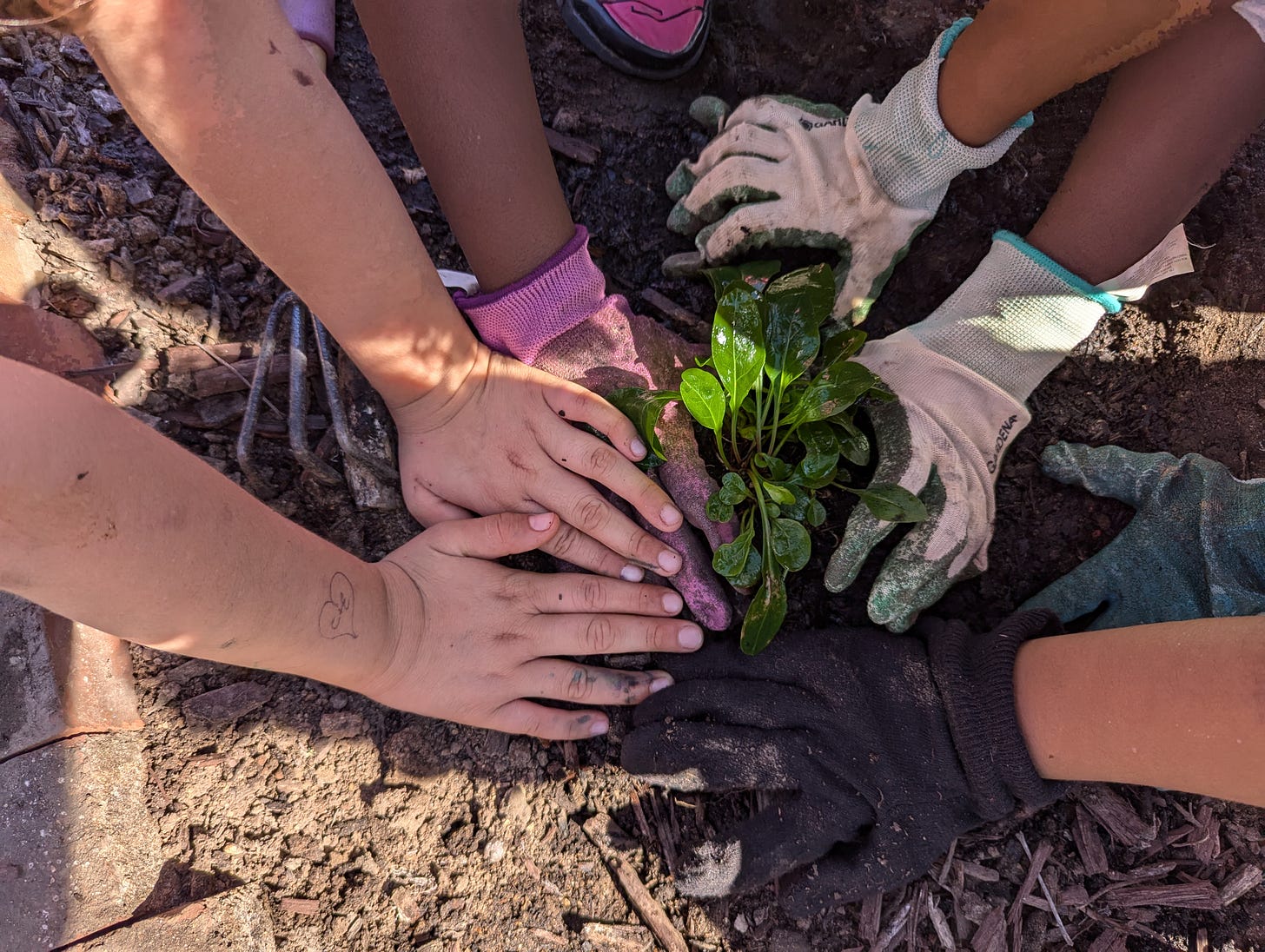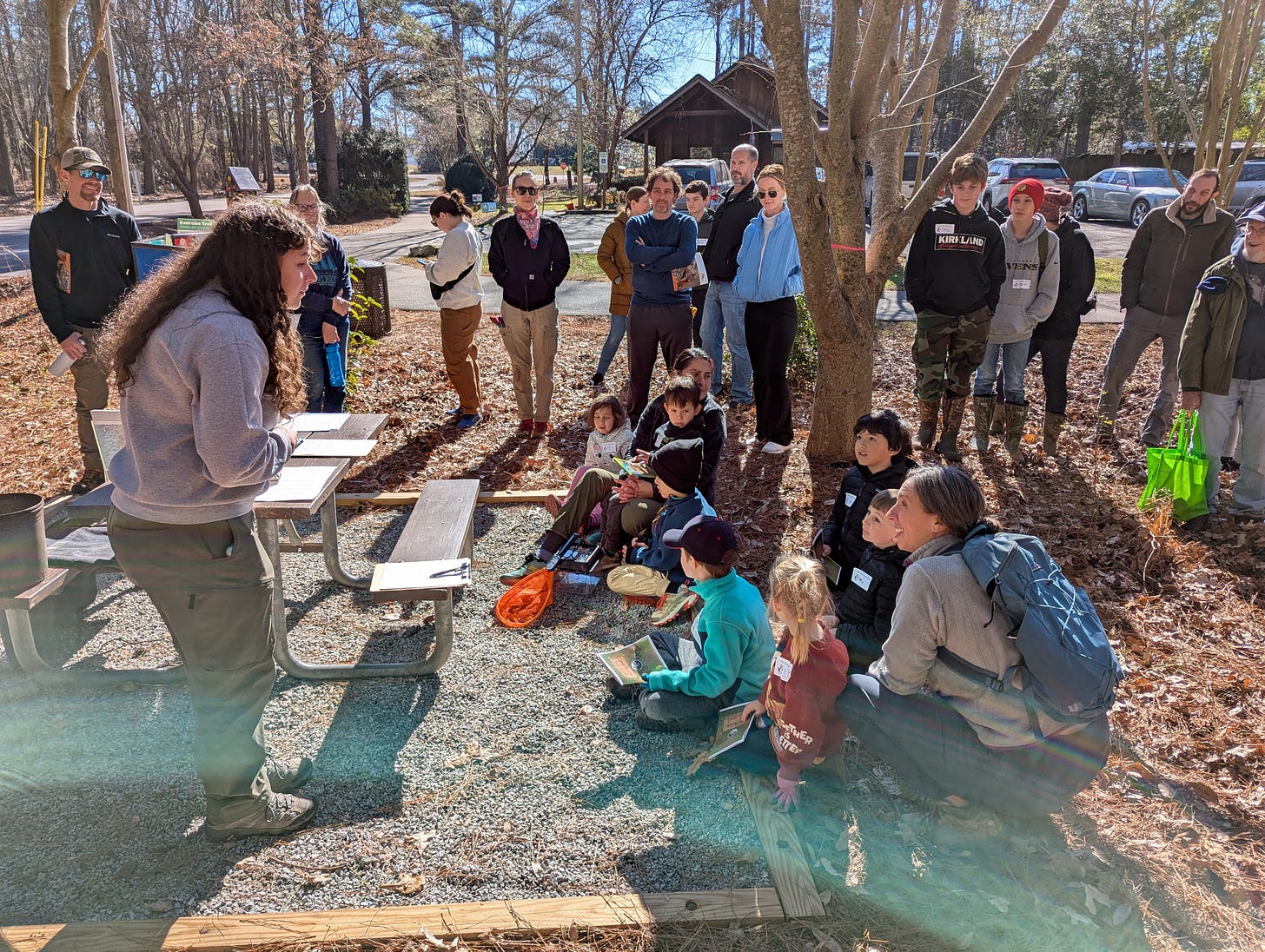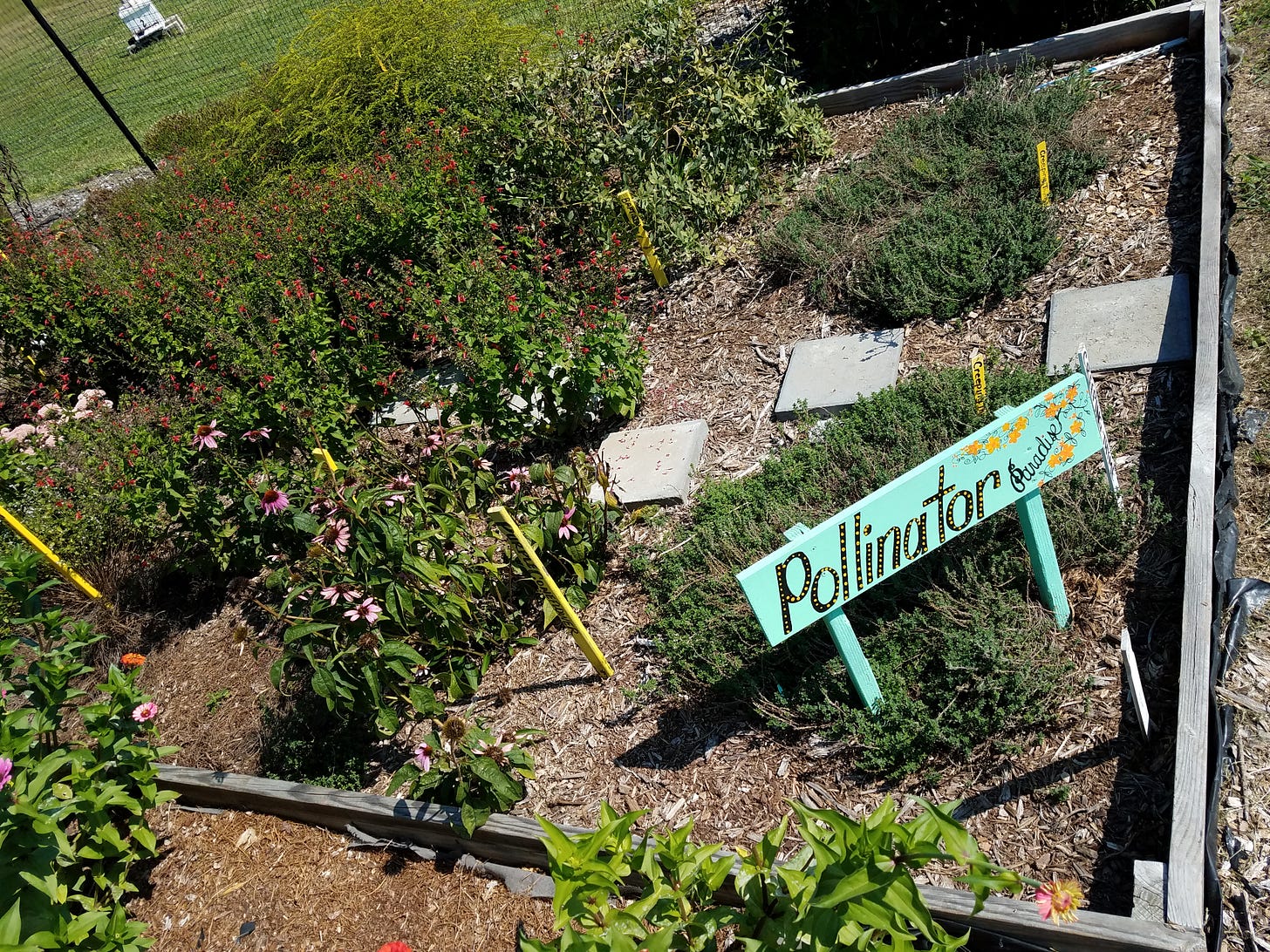Rooted in Conservation: South Wake Group Cultivates Wildlife Habitats and Community Connections
Upcoming event in Apex offers native species plant sales, family activities, and a chance to support local conservation efforts.
Note to readers: The South Wake Conservationists will host their Annual Native Plant Sale on Saturday, May 31, from 10:00 a.m. to 12:30 p.m. at Simple Gifts Community Garden in Apex. The sale will feature 15 native plant species, family-friendly activities, and garden tours with proceeds supporting local wildlife conservation projects.
Holly Springs, NC, May 25, 2025 — In the woods, backyards, and community spaces of South Wake County, a quiet but powerful movement has been reshaping the local landscape — one pollinator garden, wildlife habitat, and native plant at a time. The South Wake Conservationists (SWC), a grassroots chapter of the North Carolina Wildlife Federation (NCWF), is at the heart of this transformation. Founded in 1945, NCWF’s mission is to protect, conserve, and restore North Carolina’s wildlife and habitat through education, advocacy, and on-the-ground action — a vision SWC brings to life locally through its volunteer-led conservation work.
Since its founding in 2013, at Bass Lake Park, the all-volunteer SWC has become a driving force behind dozens of hands-on environmental projects across Apex, Holly Springs, Fuquay-Varina, and surrounding communities. Whether installing bluebird boxes at local schools, restoring pollinator corridors, or educating residents on native ecosystems, SWC has steadily built a reputation for doing community-based conservation work that often flies under the radar but has an outsized impact.
“We’re neighbors helping neighbors protect the places we love with a focus on wildlife and their habitat,” said Monty Morée, President of South Wake Conservationists. “You don’t need to be a scientist to make a difference — just someone who cares.”
A Legacy of Local Action
SWC’s roots are in simple but effective action. Early projects included wildlife-friendly gardens and environmental education programs. In just a few short years, the group has expanded its reach dramatically, partnering with schools, local governments, and other nonprofits to bring conservation to the community’s front door.
A standout example is the group's work in Holly Springs, where SWC partnered with the Town to develop a pollinator and wildlife demonstration garden at the Bass Lake Park picnic shelter. This ongoing project transformed unused park space into a vibrant native garden filled with wildflowers and grasses, educational signage, and informational handouts. The site now serves as a living classroom for the public and a haven for birds, bees, and butterflies.
In Apex, SWC has contributed to conservation at the Simple Gifts Community Garden, the site of its annual plant sale and a hub for sustainable agriculture and wildlife support. The group has collaborated with the garden’s stewards to enhance the space with pollinator beds, birdhouses, and invasive species removal, transforming the area into a certified wildlife habitat. Their partnership underscores SWC’s commitment to integrating conservation into the fabric of local life, from food systems to public education.
Efforts like these demonstrate SWC’s dedication to practical, visible conservation that enhances the local environment and community well-being. Across South Wake, SWC has installed more than 100 wildlife habitat features, including bluebird houses, brown-headed nuthatch houses, turtle basking platforms, and native plant beds, and has turned multiple sites into thriving wildlife oases.
In 2018, SWC was recognized with NCWF’s Governor’s Conservation Achievement Award for Chapter of the Year, a testament to the group’s creativity, impact, and volunteer dedication. It also received two awards in 2024, the Raleigh Environmental Award for Education and the Sir Walter Raleigh Award for Community Impact.
A Chance to Dig In — Literally
For those inspired to support SWC’s mission, the group’s upcoming Annual Native Plant Sale offers the perfect opportunity.
The sale will be held on Saturday, May 31, from 10:00 a.m. to 12:30 p.m. at the Simple Gifts Community Garden in Apex. It will feature 15 species of native herbaceous plants. Knowledgeable volunteers will help shoppers choose the best plants for their yards and gardens. Most plants are in quart-sized containers; all proceeds will support SWC’s conservation work.
The event, part of the garden’s open house, includes guided tours, refreshments, pollinator-themed kids’ activities, and a chance to explore one of the region’s standout examples of community agriculture. Simple Gifts dedicates nearly its entire organic harvest to local food pantries and partners with SWC on numerous wildlife and habitat projects.
In addition to shopping, attendees can sign up to volunteer with SWC, learn more about habitat restoration, and connect with other conservation-minded residents. SWC will also host a Chimney Swift viewing event on June 1, where participants can witness hundreds of Chimney Swifts, small, fast-flying birds known for their rapid aerial maneuvers, perform dramatic loops before funneling into a roosting chimney at dusk — a unique and mesmerizing display of communal behavior in nature. Additionally, a “Nature’s Engineers” educational program on June 12 will spotlight beavers' ecological role and impact on local wetlands. Both events are free, family-friendly, and designed to deepen community appreciation for local wildlife and the habitats they depend on.
Growing for the Future
From neighborhood gardens to public parks, SWC focuses on habitat restoration, native species planting, and education to ensure healthy, balanced ecosystems throughout South Wake County. Their work connects residents to nature while supporting essential pollinators, birds, and other wildlife that depend on these increasingly rare habitats.
“Conservation doesn’t have to be complicated,” Morée added. “Planting one native plant or building one birdhouse can make a real difference.”
For more about the South Wake Conservationists and how to get involved, visit southwakeconservationists.org.



